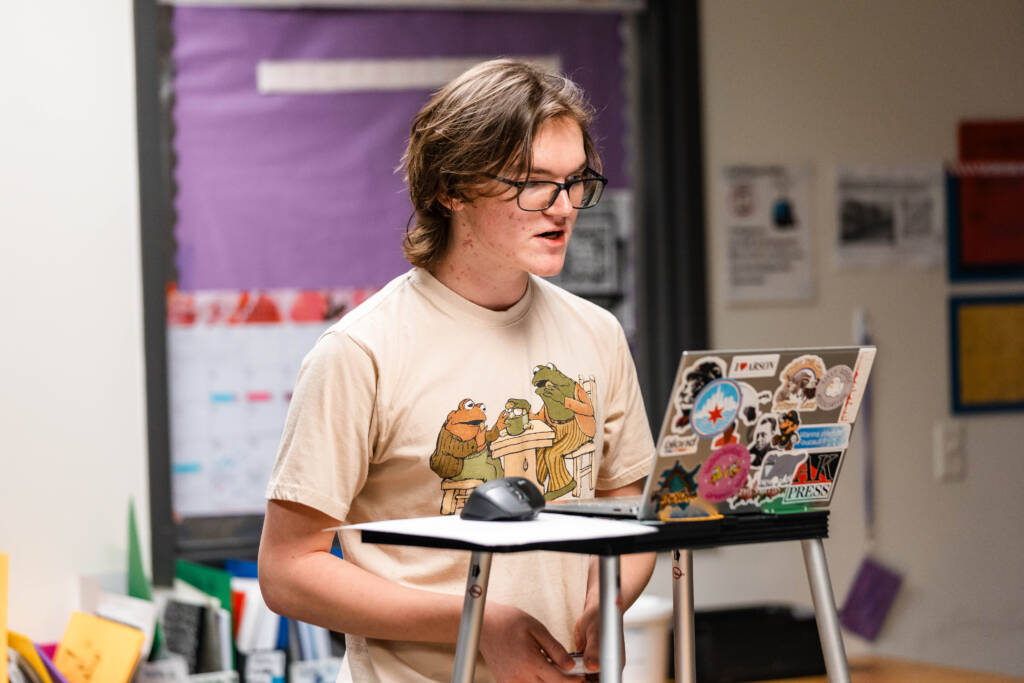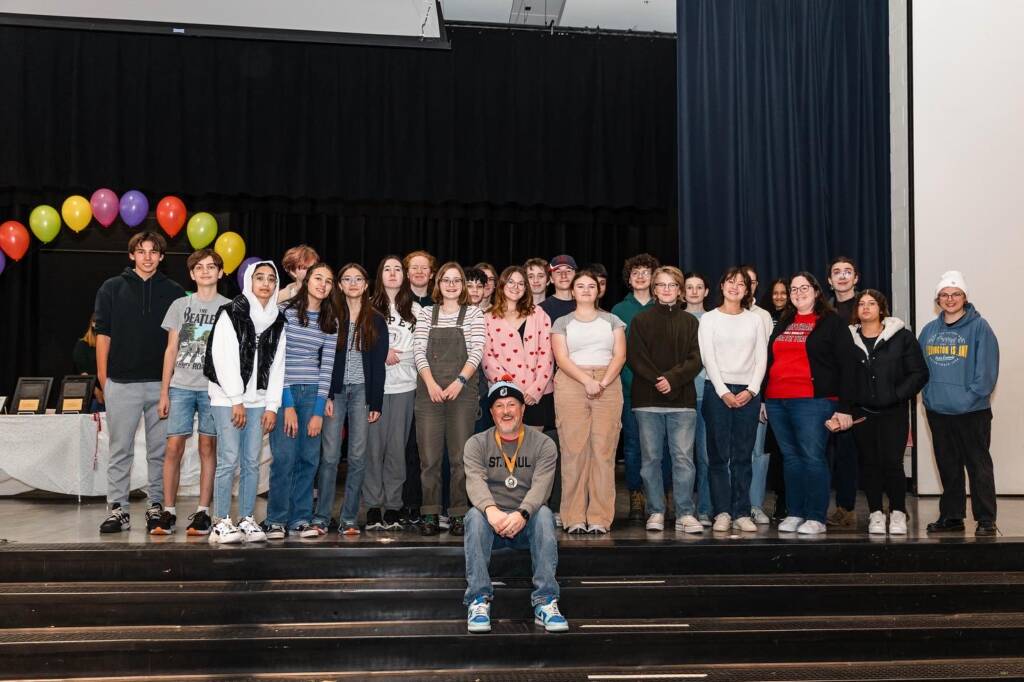Max Earns Top NSDA Honor, Reflects on Debate

Congratulations to Max, senior debater at Central High School, for earning the National Speech & Debate League (NSDA’s) Premier Distinction! This is the NSDA’s top distinction, given to coaches and students who earn 1,500+ merit points.
In his own words, Max shares his journey from accidental participant to passionate advocate, reflecting on the competitive highs, community connections, and life-changing skills that have defined his debate experience.
How It All Started
I joined debate mostly because a lot of my friends did it, so my initial involvement was basically just a coincidence! In middle school, I was lucky enough to have taken a debate class as an English elective taught by the amazing Ms. Hawksford at Capitol Hill. Those were in-class debates. Once I got to debate at tournaments, I really got into it. I really liked the competitive nature of it and coming up with creative arguments!
The Skills That Changed Everything
Debate has basically applied to every area of my life since I started. While the skills I’ve learned have certainly changed over the years, there are two core ones: public speaking and research. Public speaking has benefited me in school presentations, interviews, speeches outside of debate, and has made me more confident in novel social situations.
Research, though, is really the underrated debate skill that you get. The common saying in college debate is that by the end of the year kids will do the equivalent of a Masters thesis worth of research or more on a topic. While high school does less research than that, the skills have still helped me a ton. Debate teaches you how to research a controversial topic quickly and have that research be thorough and vetted instead of random news articles from the front page of Google.
At the start of debate, a lot of people just get handed a packet filled with evidence that coaches provide for you. However, as you move up into JV and Varsity divisions, you have to start doing your own research and you quickly learn that the world is a big place with a lot of things to say about everything. For example, while some teams might respond to a Universal Basic Income argument with standard points (it would hurt the economy, it would be politically unpopular, etc.), other teams might launch into abstract, post-modernist theories. You have to learn to predict these arguments and research answers to them, ideally before the debate happens.
That process of research into the most obscure corners of the internet, along with central research journals, drastically improved my ability to filter through sources, evaluate them, and quickly read and synthesize articles. It makes school presentations fly by, helps me feel more prepared about college, and just makes me a more nuanced individual. Surprisingly, having to research for a whole year on just one topic makes you well-read on subjects from politics to economics to governmental structures, well before school might teach you any of that.
My Favorite Memories
At Central, we like to always emphasize both “competitive and non-competitive” elements, so here both types of memories:
My favorite competitive memory happened this year at the Blake Tournament. It’s the biggest tournament hosted in Minnesota, and had about 100 teams this year. First, you debate 7 “preliminary” rounds to determine if you have a good enough record to go to the elimination rounds. After that, the tournament runs a bracket, which this year had 23 teams, with us included. We managed to get to the semi-finals, but the best memory was beating a team in the octafinals who before the round seemed very confident that they were going to beat us.
The reason this was so special to me was I had debated this exact team at Blake the prior two years—beating them in sophomore year but losing to them in round 7 last year, preventing me and my partner from making it to the bracket. So, breaking meant a lot because it meant we had beaten a far higher-seeded team than us, and because after those 3 years of seeing them at this tournament, the Minnesota team came out on top.
My favorite non-competitive memory was all of the Urban Debate National Tournament this year. The MNUDL sends two teams to this tournament every year, and this was the 2nd year in a row I got to attend. While there we got to talk to and hang out with tons of other UDL teams, including teams from the Bay Area, Atlanta, Los Angeles, Boston, and Tulsa. My best memory is getting to talk to our good friends from Kenwood and rooming with a team from Edison Prep in Oklahoma because they were super friendly and their brains, much like mine, were very invested in debate so I got to talk to them about that the whole time!
Throughout the whole tournament, there was just this sense of camaraderie that no matter who won, everyone was a UDL team and we were in it together. When we attend other nationals, often, it feels like UDL teams are at a disadvantage compared to the big suburban and private schools that are at some of them.
My Advice to Future Debaters
Give it a shot! Debate seems really daunting at the outset, because at the highest level it has a lot of esoteric vocabulary and time commitments—but, none of that is required to participate at the outset or throughout most of your career.
I was super anxious about doing my first set of debates because I felt like I didn’t fully understand the topic or a lot of the words I was using. I didn’t have a winning record until the JV State Tournament! But I kept with it because it was fun and I liked the people in the community. They’re the most supportive and intelligent people I had probably met in a concentrated community.
My advice is just to try it out, do your first set of debates, and if you enjoy it at all, stick with it and keep it up! It pays huge dividends in life skills, college applications, and connections you can keep throughout life!

What’s Next
Next year, I’m going to be heading to the University of Kansas to debate (and major in History on a pre-law track). While I won’t be coaching, I do hope to help out the MNUDL whenever I’m back in the Twin Cities. In future years, I hope to start coaching a high school team!



